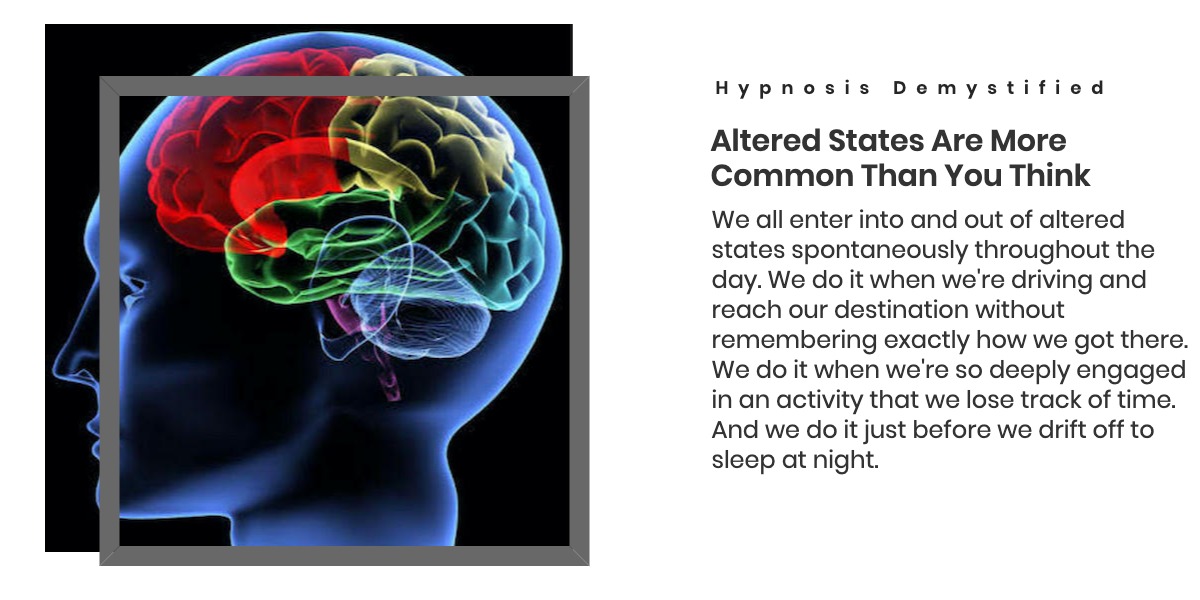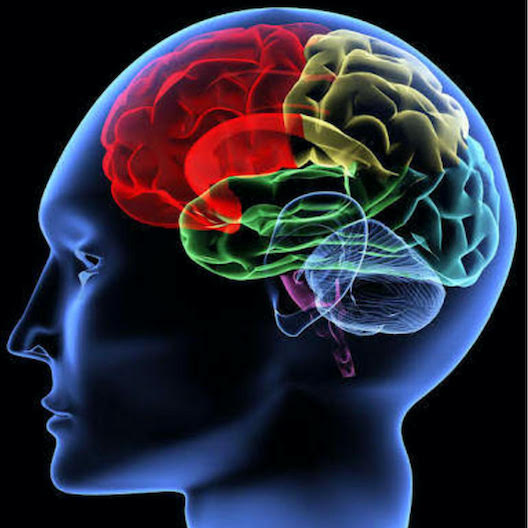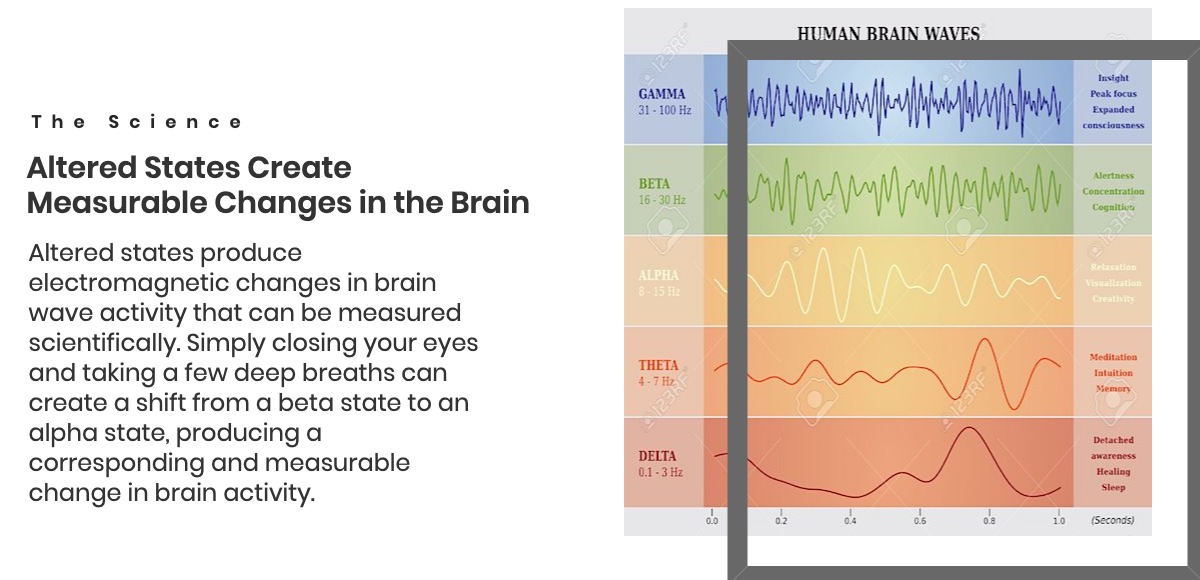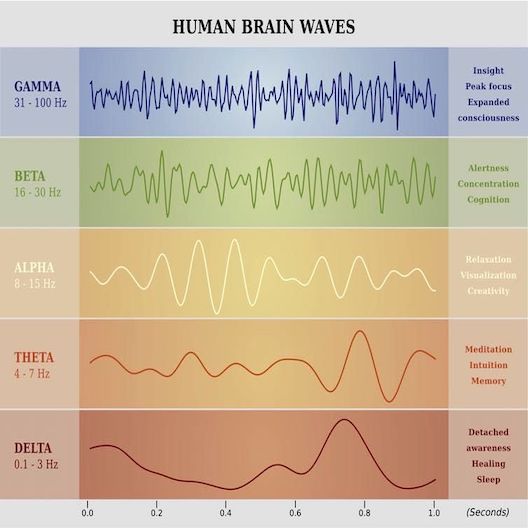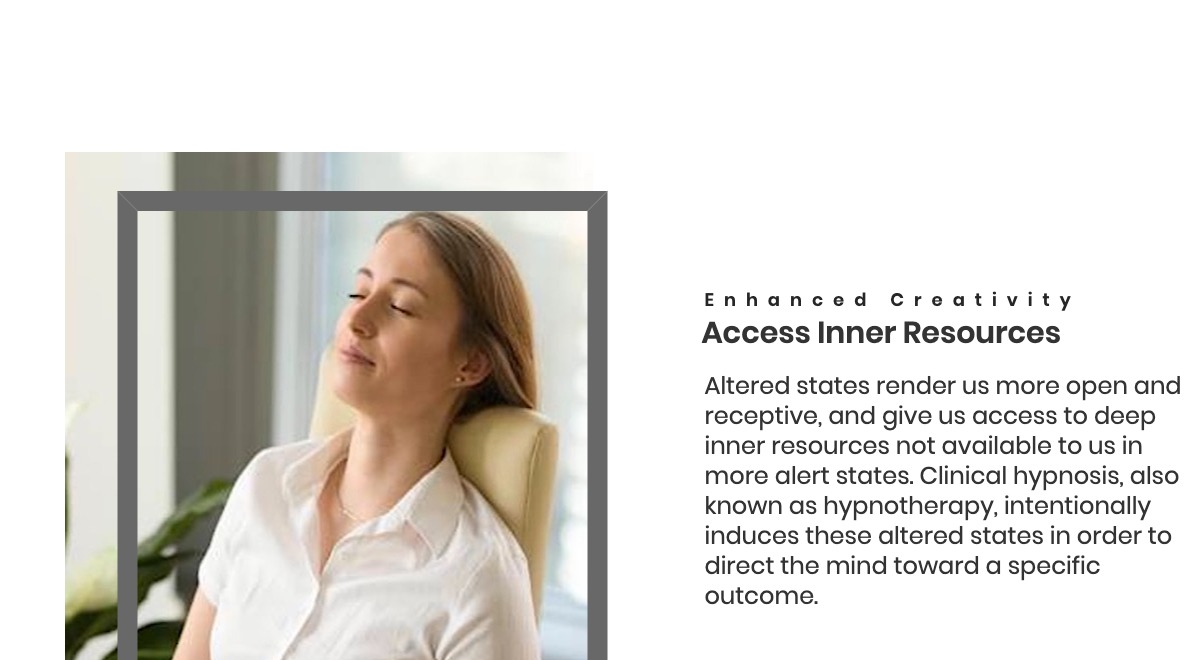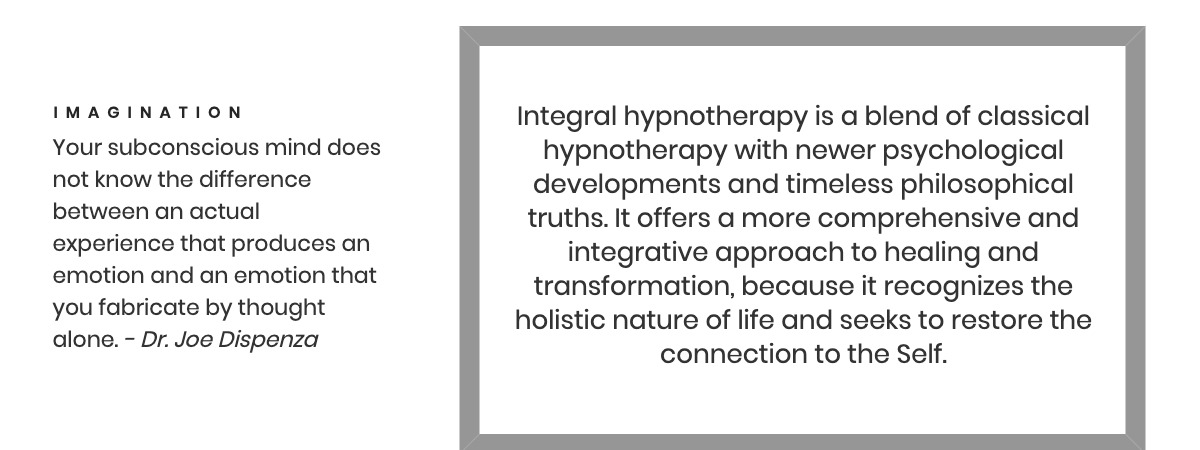Hypnosis is a natural, yet altered, state of deep
physical relaxation and focused mental concentration.
Hypnosis Demystified
Altered States Are More Common Than You Think
We all enter into and out of altered states spontaneously throughout the day. We do it when we're driving and reach our destination without remembering exactly how we got there. We do it when we're so deeply engaged in an activity that we lose track of time. And we do it just before we drift off to sleep at night.
The Science
Altered States Create Measurable Changes In The Brain
Altered states produce electromagnetic changes in brain wave activity that can be measured scientifically. Simply closing your eyes and taking a few deep breaths can create a shift from a beta state to an alpha state, producing a corresponding and measurable change in brain activity.
Enhanced Creativity
Altered States Give Access To Inner Resources
Altered states render us more open and receptive, and give us access to deep inner resources not available to us in more alert states. Clinical hypnosis, also known as hypnotherapy, intentionally induces these altered states in order to direct the mind toward a specific outcome.
Hypnotherapy is a powerful therapeutic tool that utilizes hypnosis as a vehicle to help find and amend self-limiting beliefs and patterns that stand between you and your goals.
By empowering you to tap into your own inner resources,
change is accelerated and results occur quickly.
Your subconscious mind does not know the difference between an actual experience that produces an emotion and an emotion that you fabricate by thought alone. — Dr. Joe Dispenza

Sandra Fox, CMS-CHt, FIBH
Sandra Fox is a certified clinical hypnotherapist who has studied and practiced holistic health strategies and mind-body techniques for more than a decade. She is a Fellow with the International Board of Hypnotherapy and a graduate of the Hypnotherapy Academy of America. She holds one of the highest levels of certification available, with 400 hours of training and experience in evidence-based techniques and protocols, including medical support hypnosis. She is also a Licensed Practitioner of Neuro-Linguistic Programming (NLP), an AddHeart Facilitator for the HeartMath Institute, and a certified yoga instructor. She holds a Bachelor of Science in Business & Accounting and built a successful career as a CPA and business owner before deciding to follow her passion—teaching others to create greater health and well-being by using the power of their own minds.






Commonly Asked Questions About Hypnosis
Do I have to believe in hypnosis for it to work?
You don’t have to believe in hypnosis, but you do need to have an emotionalized desire for it to work. It’s also important that you don’t have opposing beliefs that would minimize its effectiveness.
What if I can’t be hypnotized?
Some people are more responsive than others, but anyone with an adult reasoning mind who wants to be hypnotized can be. Because hypnosis is a skill that improves with practice, responsiveness is fluid. The more you do it, the greater your response.
How will I know if I’m actually hypnotized?
Hypnosis is characterized by a deep physical and mental relaxation accompanied by a heightened sense of focus. It is such a natural state that many people don’t feel much different at all. Most, however, feel a subtle, yet significant, shift in awareness.
Is hypnosis a form of mind control?
No. One of the biggest and most unfounded fears people have is that they’ll lose control. In truth, you have even more control than usual during hypnosis. Because your senses are heightened, you are acutely aware of everything happening—often even more than in your normal state. You alone choose how to direct your mind. Hypnosis is not truth serum, so you will not divulge secrets unless you choose to, and you will not do anything that is outside of your moral code.
What about the shows I’ve seen where people are brought on stage and made to act foolish?
The entertainment industry has done much to sensationalize hypnosis by portraying it as something that allows people to be coerced into doing things they wouldn’t ordinarily consent to. Nothing could be further from the truth. Hypnosis is always a choice, and no one can be hypnotized against his or her own will. You will never be “made” to do anything you don’t want to do, because you are the one directing your mind.
How many sessions are required to see results?
Hypnosis works quickly to change behavior, because it is an emotional process rather than an intellectual one. Although every person is unique and every case is different, results are typically achieved within three to six sessions.
Why bother with hypnosis ? Aren't positive thoughts and positive affirmations just as effective?
You can say positive affirmations as much as you like, but if you have a subconscious belief that conflicts with them, the two will cancel each other out. In order for positive thoughts and affirmations to work, your thoughts have to penetrate below the level of conscious thinking and into your subconscious mind where your beliefs and memories are stored.
What is NLP?
Neuro-linguistic programming (NLP) has to do with the way the brain stores information. Every memory has a sensory representation which is neurologically structured in the brain. NLP refers to a set of techniques used in hypnotherapy to reprogram the way disempowering memories are stored by utilizing the neuroplasticity of the brain.

